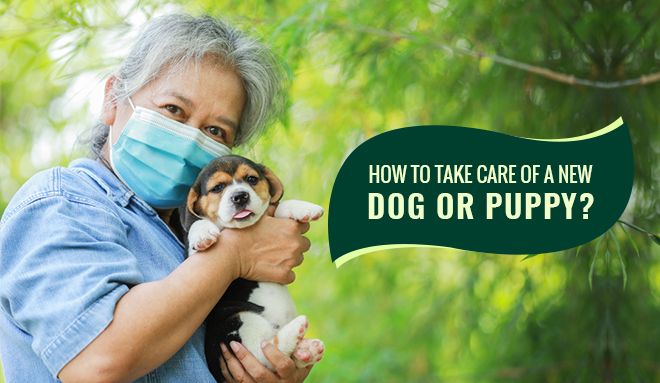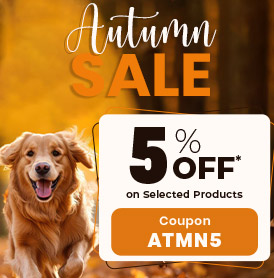Puppies are undeniably among the cutest creatures on the planet. Parenting a new dog or puppy, on the other hand, is no easy task. Here’s a list of a few tips to guide you in caring for your new family four-legged member.
You can very much bet on three things when it comes to bringing your new puppy home for the first time: overwhelming excitement, cleaning up your dog’s accidents, and a huge lifestyle adjustment. As you’ll soon discover, a growing puppy requires much more than a feeding dish and a doghouse to thrive. And, while it may seem like a lot of work at first, it’s definitely worth it. Establishing good and healthy behaviors at the earlier stages of a pup’s life will help you and your pup enjoy many dog-years of happiness.
1. Find an Experienced Veterinarian
The first place you and your new puppy should go is to the veterinarian for a checkup. This visit will not only guarantee that your puppy is healthy and free of significant health problems such as birth abnormalities, but it will also assist you in starting a strong preventive health regimen. If you don’t already have a veterinarian, ask your friends for recommendations. If you got your dog from a shelter, ask them for their veterinarian’s recommendations. Local dog walkers and groomers are also excellent sources of inspiration. Visiting a vet will ensure your pup’s health, birth defects or any issues at the earlier stage and can easily be treated.
2. Befriending the Family
Bringing a puppy home is a joyous occasion, particularly for a family with children. As new owners, we must keep in mind that this is a significant life change for all parties involved — both animal and human. This puppy will be in a new environment, with new sounds and smells to discover, as well as a brand new family to meet.
When your new puppy is first introduced to its new home, keep it on a leash and allow it to explore its new surroundings under your supervision. You want it to be at ease, but a free-roaming puppy will frequently have accidents if left alone for too long.
3. Physical Activity and Socialization
When exercising your puppy, keep him on a short leash by your side. Allowing the puppy to pull and lead you is not a good idea. Owners want to establish dominance so the puppy knows what to do when they give you a command. Look into obedience classes and ways to socialize your puppy when it’s about 4 to 6 months old. Teaching your dog to obey commands will help you keep it safe.
Teaching a puppy to socialize around the age of 12 weeks will make life easier. Keep your puppy on a leash to greet visitors at the door; do not allow them to jump, and provide positive reinforcement by allowing your visitor to give a treat for a proper greeting. Puppies, like children, enjoy and respond well to frequent positive reinforcement.
4. Quality Food Shopping
Your puppy’s body is developing rapidly, which is why you should choose food designed specifically for puppies rather than adult dogs. To ensure that the food you choose meets your pup’s nutritional needs, look for a statement from the Association of American Feed Control Officials (AAFCO) on the packaging.
Small and medium-sized breeds can transition to adult dog food between the ages of 9 and 12 months. Large breed dogs should eat puppy kibble until they are two years old. Make sure your puppy has access to fresh, plentiful water at all times.
Feed several times per day:
- 4 meals a day for 6-12 weeks old pup
- 3 meals a day for 3-6 months old puppy
- 2 meals a day for 6-12 months old dog
5. Instill Obedience
Instilling obedience can help you prepare your pup for a life of positive social interaction. Teaching your dog commands like sit, stay, down, and come will not only impress your friends, but will also keep your dog safe and under control in potentially dangerous situations. Many puppy owners discover that obedience classes are an excellent way to train both the owner and the dog. Puppies between the ages of 4 and 6 months are typically accepted into classes.
It can be the best option you can add to the upbringing of your beloved pup. In the upbringing stage of your pup, it is essential to keep the better things instilled in the life of your pet. This all is not only will benefit your pet but also will help you form a strong bond between you and your pet. So, it can be tough at the beginning but you get the most of it when it comes to the younger stage. At the younger age of the pup, it will definitely help both you and your pup. If you find these tips useful, please share them with a friend or family member who has a new puppy or dog and help spread the word!


